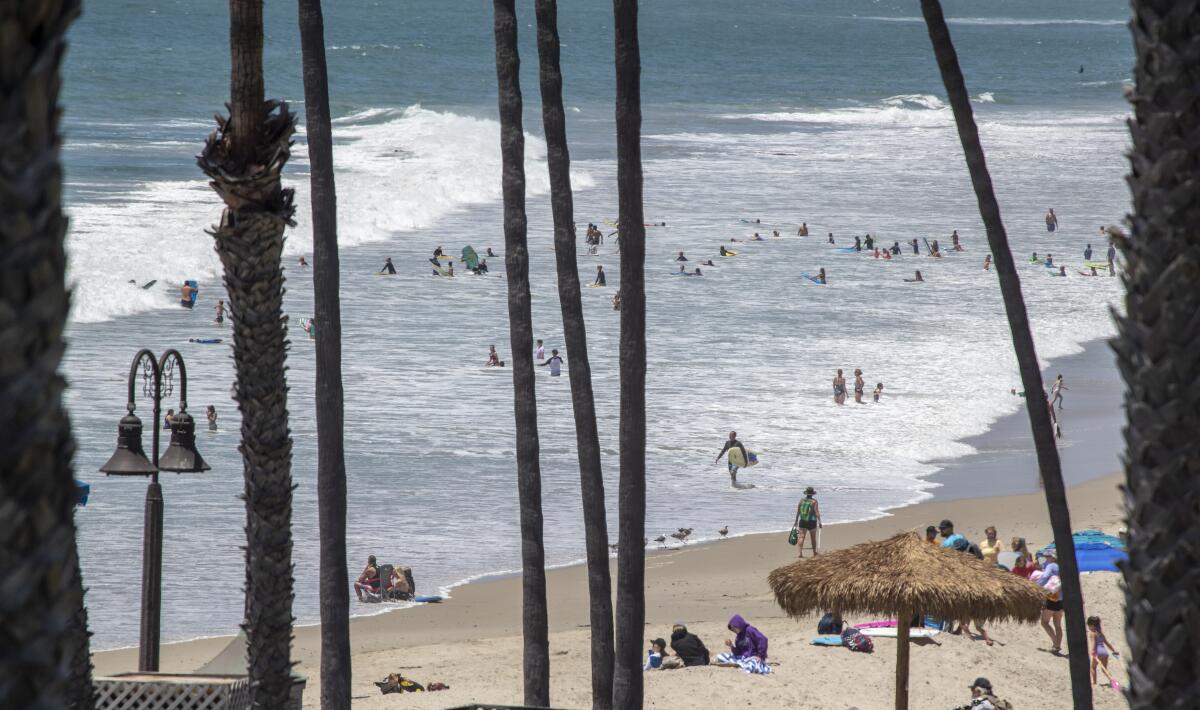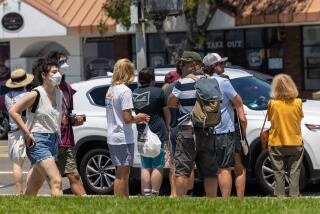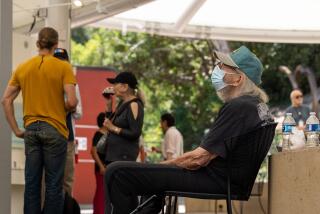Editorial: One weekend of careless fun is not worth months of misery and death

We now know that a resurgence of coronavirus infections and sickness in Los Angeles and other California counties began around Memorial Day, as people emerged from three difficult and scary months stuck inside to take advantage of simple pleasures!
Who could blame anyone for having believed that the worst of the pandemic was over, at least until a possible second wave in fall? The extreme measures in California had paid off. Confirmed cases of COVID-19 were waning; so were hospitalizations and deaths. We had a stockpile of empty hospital beds and unused ventilators. And Gov. Gavin Newsom and county health officials were lifting pandemic restrictions on businesses at a rapid pace.
Face masks were still required in many public places, as was keeping a safe distance from other humans. But was that truly necessary — or just an annoying overabundance of caution?
With the benefit of hindsight, it’s clear now that, yes, those measures were still necessary in early June. The coronavirus that causes COVID-19 wasn’t on the run, just waiting for us to let our collective guards down — which we did, in the haste to get back to work, or something like normal. In just a few weeks, California — and many other states — saw the effects of that complacence when the steadily downward-trending metrics started rising in an ascent too steep to be written off merely as a result of more testing.
And now, here we are, on the verge of another holiday weekend — one that is typically celebrated with park picnics, family beach outings, neighborhood cookouts and firework displays. And if Californians living in the 19 counties, including Los Angeles, that are nearing the danger zone don’t heed the lesson of the past month, there is a real possibility that the current swell will turn into a tidal wave. Much depends on whether individual behaviors change. If not, we may all suffer the consequences.
And, to be clear, the consequence for careless revelry over the Fourth of July weekend may well be months of misery and death. At the moment, the U.S. is reporting about 40,000 new cases of COVID-19 a day, which is a nearly 100% increase from just a month ago. At a U.S. Senate hearing on Tuesday, Dr. Anthony S. Fauci, the director of the National Institute of Allergy and Infectious Diseases, warned that ignoring precautions could result in 100,000 new cases a day.
What’s more, the demographics of infections have shifted. In the first months of the pandemic, COVID-19 seemed to be primarily a disease of the old and sick. Now, more of the cases are being reported in people under 40. In some places in Texas, which is experiencing one of the nation’s worst outbreaks, the median age of people testing positive for coronavirus is under 30. Twenty-somethings may be less likely to die than an 80-year-old with a chronic illness, but they could spread pathogens to others. Also, the virus hasn’t been around long enough to have any clear picture of its long-term health effects on survivors.
Bars, indoor dining areas and other indoor businesses have been ordered shut down in the 19 counties, including Los Angeles, that have been on the governor’s watch list. State beach parking lots will close, and state agency enforcement teams will crack down with new gusto on businesses that don’t comply. What authorities won’t find easy to police, however, are celebrations behind closed doors, and that’s a problem. Family gatherings have been cited as a worrisome source of COVID-19 transmission all over the state.
Many communities have also canceled fireworks displays. It’s a reasonable measure, but one that may only drive people to less regulated, and illegal, neighborhood fireworks shows. This year “safe and sane” fireworks takes on a new, sobering reality.
It’s understandable that people want to celebrate the nation’s founding as if it were just any other year. But it’s not. It’s a year of terrible illness and suffering, and the independence we need is freedom from disease, ignorance and selfishness. That’s something worth waiting to celebrate.
More to Read
A cure for the common opinion
Get thought-provoking perspectives with our weekly newsletter.
You may occasionally receive promotional content from the Los Angeles Times.










